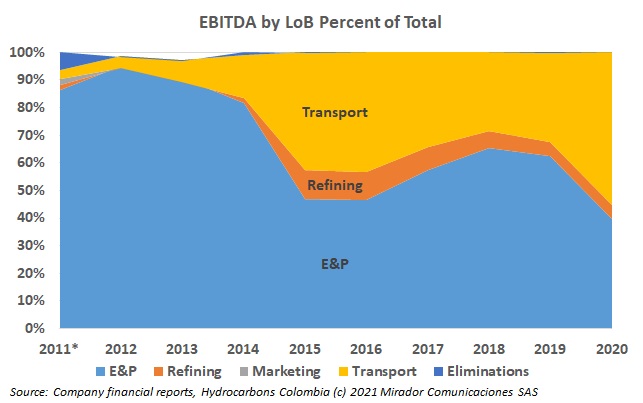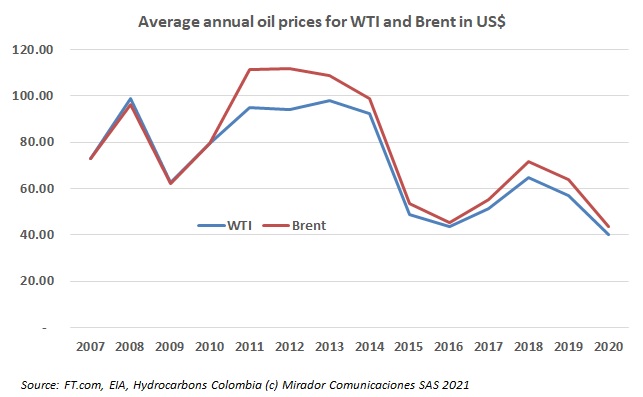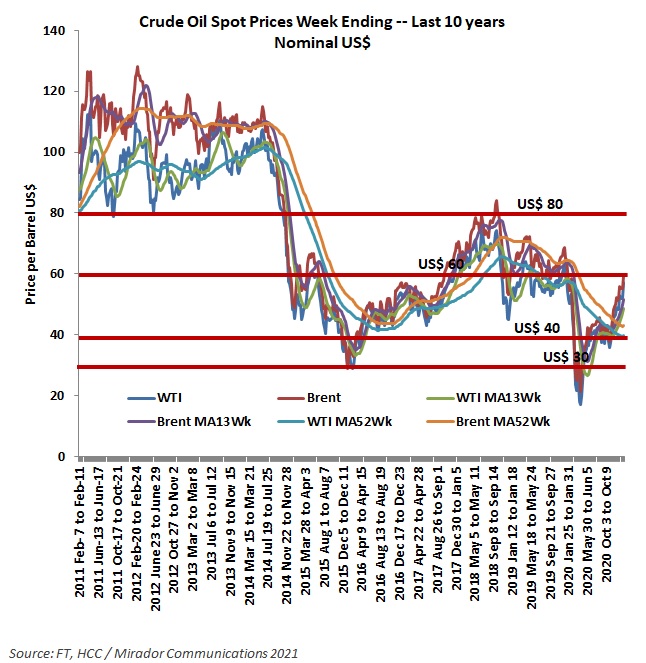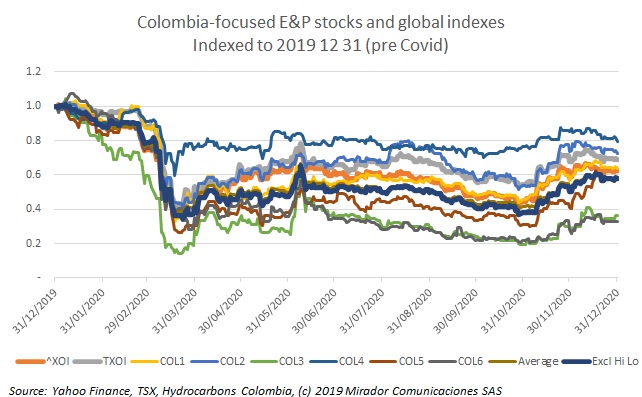
Or why Hacienda likes the idea of ECP diversifying away from oil and gas: It does not seem to do them very well.
Since coming back from the year-end holidays, the Colombian business news – and our modest newsletter – has been dominated by Ecopetrol’s surprise announcement that it was bidding for the country’s long haul electricity transmission provider ISA. This has put the NOC’s long-term strategy up for public debate. Coincidentally, two global thinktanks published separate but similar studies warning National Oil Companies to change their investment plans. A song for Felipe Bayón.

A reader question arose about forecasting oil prices for business cases so we thought it worthwhile to go through some of the alternative methodologies and say what we would do.
Recently, I came across several articles, reports and webinars dealing with the special challenges of women in the oil and gas industry. Then I interviewed Marianna Boza, O&G and Mining Head at of Brigard Urrutia and one of the driving forces behind the Colombian chapter of Women in Oil and Gas, an initiative to bring greater gender equity to the sector.

Last Friday Brent nearly closed at US$60 and in honor of that auspicious event, we decided to update our short- and long-term graphs.
The most surprising news of the past week was Ecopetrol’s decision to make a bid for 51.4% of the country’s long-haul electricity transmission provider, ISA. This could be a financial trick by Hacienda to turn 8% of its Ecopetrol stock into cash, a way to assure a floor price for ISA or it could be, as ECP said in its press release, a major step along its way to becoming a diversified energy company.

This past week Colombia passed a number of unfortunate Covid-19 milestones so we thought we should update our graphs. The country passed the 2 million detected cases mark on Saturday and earlier in the week, passed 50,000 deaths attributed to the pandemic.
OK maybe the title is a little dramatic but I do not think that 2021 is any clearer – anymore free from fear about what might happen – than was 2020. And yet, decisions still have to be made, short-, medium- and long-term decisions, on the best information available.

We said we would not be doing the Colombian Share Price Index analysis again because there were too few publicly-traded, Colombia-focused companies remaining to be meaningful. But Covid-19 changes everything and we could not resist a peek at what the topsy-turvy world of 2020 had done to our index.
To say the very least, this year did not develop as expected. Some aspects will pass, as a famous Doonesbury cartoon about the 1970s reminded us, and sometime this year or next we will feel more ‘normal’. Others are here to stay. Not all the members of either category are still clear.